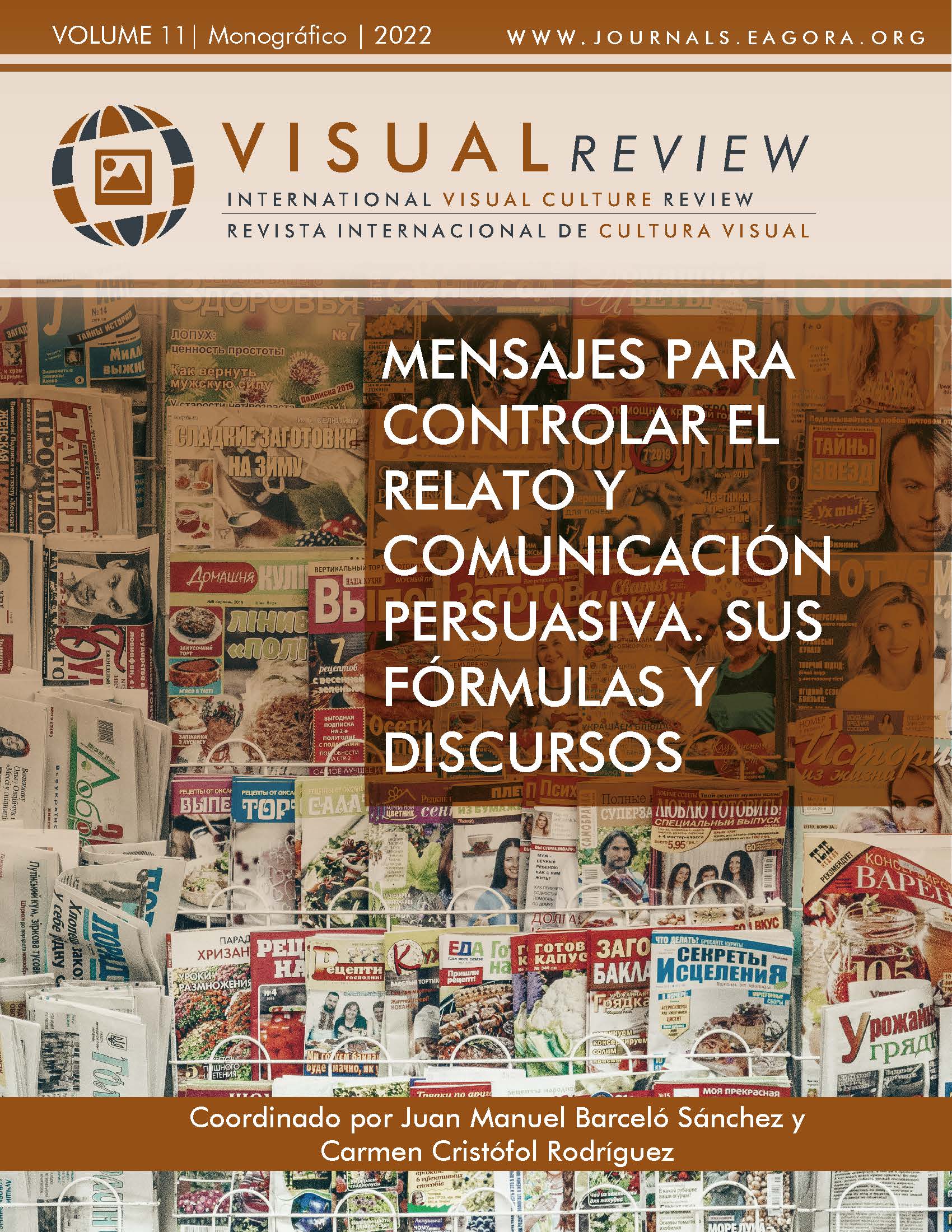Speech and the national question in Panama between the years 1860 and 1880
DOI:
https://doi.org/10.37467/revvisual.v9.3658Keywords:
Panamá, United States of America, International Relation, intellectual movements, Deep Forces, Nation, National ThoughtAbstract
The central purpose of this article is to reveal the existence of the deep forces of a part of the Panamanian intellectual movement represented by Justo Arosemena and Pablo Arosemena that contributed to the formation of a national identity, and that not only managed to articulate an idea of nation, but which also gave rise to a profoundly Americanist discourse based on the idea of cooperative relations with other countries in the Latin American region.
Downloads
Global Statistics ℹ️
|
389
Views
|
622
Downloads
|
|
1011
Total
|
|
References
Arauz & Pizzurno. (1993) El Panamá colombiano (1821-1903). Panamá: Primer Banco de Ahorros y Diario la Prensa de Panamá.
Arenal, C. (1981) La génesis de las relaciones internacionales como disciplina científica. Revista de Estudios Internacionales Vol. 2. Núm. 4. Octubre-diciembre 1981. https://dialnet.unirioja.es/servlet/articulo?codigo=2494287
Arosemena, J. (1981) Panamá y nuestra América. UNAM. México D. F.
Arosemena J.(1998) El Estado Federal en Panamá. Ediciones Manfer, S. A. Panamá
Arosemena, P. (1982) Estudios. Colección Kiwanis. Panamá
Avila, V. (1996). El incidente de la tajada de sandía y la soberanía del Istmo. Revista Tareas Nº 94. Septiembre- diciembre de 1996.Panamá. pp.69-83
Bilbao, F. (1856) Iniciativa de la América. Idea de un Congreso Federal de las repúblicas. UNAM. http://ru.ffyl.unam.mx/bitstream/handle/10391/2947/03_CCLat_1978_Bilbao.pdf
Busso, A. et al (2008). Fuerzas profundas e identidad. Reflexiones en torno a su impacto sobre la política exterior. Tomo 1. Rosario: Universidad Nacional de Rosario, 2008. EBook.
Castillero R. E. (1932) El Ferrocarril de Panamá y su Historia. Imprenta Nacional. Panamá.
Devés, E. (2009). La constitución de un pensamiento latinoamericano sobre asuntos internacionales, Intervención realizada en el marco de las Terceras Jornadas sobre la “Política Exterior de Bolivia organizadas por la O.E.A. y la UDABOL en La Paz y Santa Cruz de la Sierra, marzo. http://wold.fder.edu.uy/contenido/rrii/pensamiento-lat-asuntos-internacionales.pdf
Duroselle, J. B. (2018). El estudio de las Relaciones Internacionales: Objeto, método, perspectivas. Relaciones Internacionales, (37), 173–191. https://doi.org/10.15366/relacionesinternacionales2018.37.007 DOI: https://doi.org/10.15366/relacionesinternacionales2018.37.007
Ghotme, R. (2007). La historia de las relaciones internacionales en Colombia una ojeada a la literatura sobre la fase republicana, 1820-1903. Revista de Relaciones Internacionales, Estrategia y Seguridad. https://doi.org/10.18359/ries.189 DOI: https://doi.org/10.18359/ries.189
Heredia, E. (2008) Relaciones internacionales Latinoamericanas: historiografías y teorías. Revista Estudos Ibero-Americanos, PUCRS, v. XXXIV, n. 1, p. 7-35, junho 2008. https://core.ac.uk/download/pdf/194773481.pdf DOI: https://doi.org/10.15448/1980-864X.2008.1.4522
Hollis, M. & Smith S. (1990) Explaining and Understanding international relations. Oxford University Press.
Mendez, O. (1970) Justo Arosemena. Editorial Universitaria. Panamá
Renouvin, P.(1990) Historia de las relaciones internacionales. Siglos XIX y XX. Editorial Akal: Madrid, España
Renouvin & Duroselle. (2000) Introducción a la historia de las relaciones internacionales. FCE. México.
Reza, G.(2018) Un capítulo inadvertido del americanismo: el Segundo Congreso Americano de Lima y el liderazgo de Justo Arosemena (1864-1865) Araucaria: Revista Iberoamericana de Filosofía, Política, Humanidades y Relaciones Internacionales, ISSN-e 2340-2199, ISSN 1575-6823, Vol. 21, Nº 41, 2019, págs. 537-552. https://dialnet.unirioja.es/servlet/articulo?codigo=7323764
Rubilar,M. & Sánchez, A. (2019) Relaciones internacionales y construcción nacional. América Latina, 1810-1910. Universidad Católica de la Santísima Concepción, Chile/Universidad Michoacana de San Nicolás de Hidalgo, México. Michoacán, México. https://doi.org/10.24197/ihemc.40.2020.873-876 DOI: https://doi.org/10.24197/ihemc.40.2020.873-876
Soler, R. (1971) Pensamiento panameño y concepción de la nacionalidad durante el siglo XIX. (para la historia de las ideas en el Istmo) 2ºedición.Librería Cultural Panameña. Panamá. https://doi.org/10.1215/00182168-35.2.325 DOI: https://doi.org/10.1215/00182168-35.2.325
Soler, R. (1995) Etapas del pensamiento y Acción Antiimperialista en Panamá. Revista Tareas, Nº 91: CELA, septiembre- diciembre de 1985.Panamá.
Ortiz, G. (2013). Sobre la identidad. Problemas y preguntas. Studia Politicæ, (10), p. 35–65. http://revistas.bibdigital.uccor.edu.ar/index.php/SP/article/view/434
Tello, A. (1985) Escritos de Justo Arosemena. Estudio introductorio y antología. Universidad de Panamá. Panamá.
West de Cochez, Jacqueline. (1982) Pablo Arosemena. Estudios. Colección Kiwanis. Panamá
Downloads
Published
How to Cite
Issue
Section
License
Those authors who publish in this journal accept the following terms:
-
Authors retain copyright.
-
Authors transfer to the journal the right of first publication. The journal also owns the publishing rights.
-
All published contents are governed by an Attribution-NoDerivatives 4.0 International License.
Access the informative version and legal text of the license. By virtue of this, third parties are allowed to use what is published as long as they mention the authorship of the work and the first publication in this journal. If you transform the material, you may not distribute the modified work. -
Authors may make other independent and additional contractual arrangements for non-exclusive distribution of the version of the article published in this journal (e.g., inclusion in an institutional repository or publication in a book) as long as they clearly indicate that the work was first published in this journal.
- Authors are allowed and recommended to publish their work on the Internet (for example on institutional and personal websites), following the publication of, and referencing the journal, as this could lead to constructive exchanges and a more extensive and quick circulation of published works (see The Effect of Open Access).














